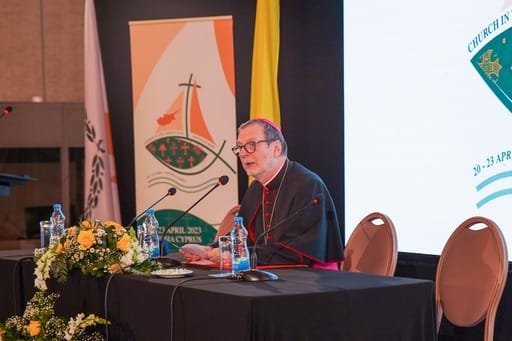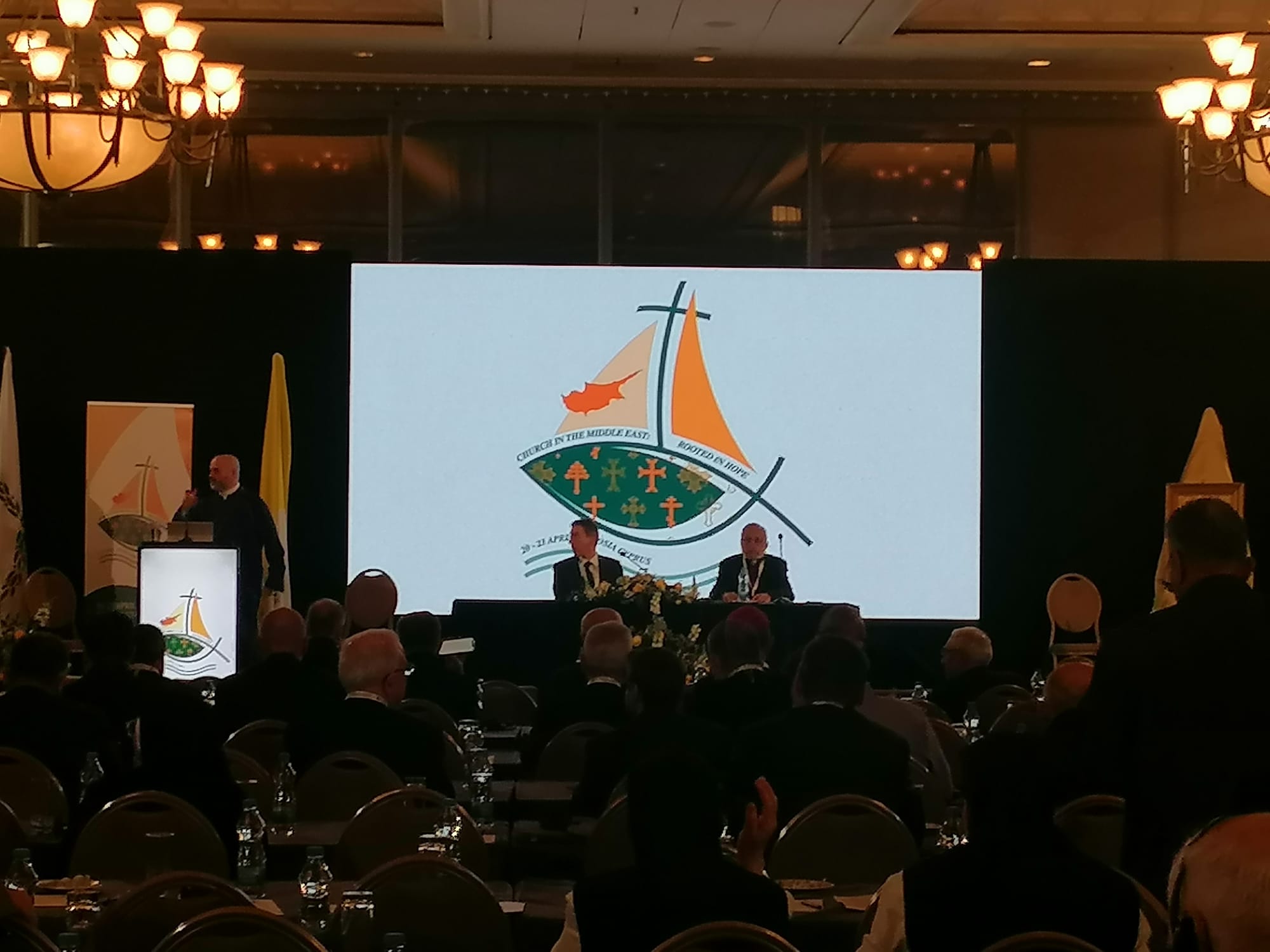
“It must not remain an isolated event, it should become a style. Over the past few days, we practised hearing and listening with respect, understanding, peacefulness, and mutual love, as true brothers and sisters. This is what the Church is.” Those were the concluding remarks of the Prefect of the Dicastery for the Eastern Churches, Msgr. Claudio Gugerotti at the Symposium ‘Rooted in Hope” that came to a close on April 20 in Nicosia (Cyprus.) The event was promoted by the ‘Riunione delle Opere di Aiuto alle Chiese Orientali (ROACO- Assembly of Organizations for Aid to the Eastern Churches), to mark the 10th anniversary of the Post-Synodal Apostolic Exhortation “Ecclesia in the Middle East”, signed by Benedict XVI in Harissa (Lebanon) on September 14, 2012. Over 250 representatives of the Catholic Churches in the Middle East – patriarchs, bishops, priests and members of religious institutes and lay movements – devoted the four-day event to rereading the document – which the Latin Patriarch of Jerusalem Pierbattista Pizzaballa described as “a testament entrusted to the Churches of the Middle East” – in the light of the most significant events of the past 13 years, with reflections on the possible orientations and paths to be undertaken in the future.
Strong and vibrant Churches. In his closing address, Bishop Gugerotti described the Churches as characterised by “a great vitality”; “strong and lively churches that yearn to be saintly, bearing witness to the faith, free, active and vibrant. These Churches are close to Jesus and to his way of speaking. They radiate his very breath.” “The history of your Churches is a history of miracles”, he said: “Your liturgy is one of these miracles.” The historic developments that took shape, notably in the years after the publication of the Exhortation, took a heavy toll on Christian communities, however, the Prefect remarked, “Let us stop complaining. Your forefathers – he said addressing the audience – walked the Way of the Cross, chanting hymns of praise to the Lord. The same hymns that you sing today. They represent the grace of the faith bestowed by your fathers and mothers. The Gospel is the reason for our existence, and therefore it must not be taken for granted, lest it be forgotten.” A further point highlighted by Bishop Gugerotti as “important” is the contribution of young people: “We listened to young people saying that this must not be a museum but a pure water wellspring, even if it springs up in the desert. Let ourselves be moved by your young people’s yearning to work together. Bishops, priests and the people, spreading the word of the Gospel with the disabled and the poor. Some of you – he added – said that keeping our privileges or those of the privileged among us is not important. What’s important is to have a young heart, for young eyes can see the miracles of faithfulness, of courage and the brave choices made today.” The Prefect likewise encouraged “praise in your households” and “to do everything possible to ensure that prayer thrives in the hearts of your migrants. They will be faithful to Jesus and his Church and you will not lose them. As Christians they will be the good seed for the societies in which they live.”
Financial Aid. In his address, Msgr. Gugerotti tackled the subject of financial aid to the Oriental Churches, calling on them to “share the collected sums with fairness, creating a common fund, honestly administered and distributed, and to do your best to be financially self-sufficient” as best you can, but “not to be beggars, because it would harm the dignity that permeates your history, and which you and we are proud of.”
Citizenship. With regard to the thorny issue of citizenship, frequently mentioned during the Symposium and recalled in the Exhortation, Msgr. Gugerotti emphasised “the full support of the Holy See” to the local Churches’ legitimate request to see “the Christian population recognised as full citizens. This is entirely just. The Holy See has been putting much effort into this, but our style is often a silent one. We are often accused of doing nothing. The fact that we don’t take to the streets doesn’t mean we are inactive. We don’t want to be popular; we want our efforts to be efficacious. We need to speak to the right people and in the right way. If we are not saying everything you would like to hear, it’s not because we are not courageous. It’s because we want to be effective. Our meeting starts now – he concluded – let us be true to what we say and let us do our best, all together, to make it happen.”











